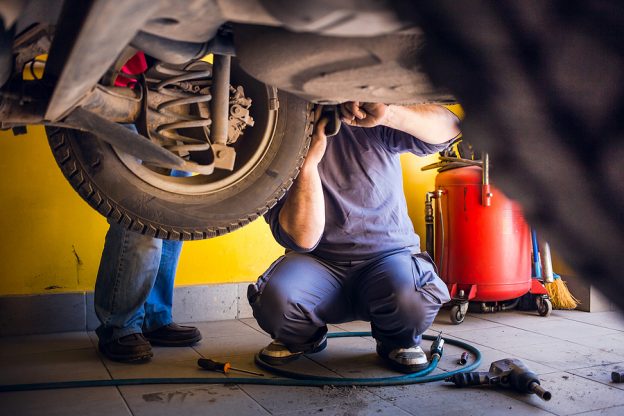
This is a very sensible question and it’s very wise to check the accuracy of your tax code.
If you are a mechanic or auto technician your tax code should be 1262L if you buy some hand tools and wash your own work protective clothing.
At the time of writing this is worked out by adding together the tax free personal allowance of 1250L (in the 20/21 tax year) and the mechanics flat rate expense allowance of £120.
A flat rate expense tax code allowance is given by HMRC to some trades and professions to cover some of the cost of work related expenses. It is documented by HMRC at point .d in the trades ancillary to engineering section under motor mechanics in garage repair shop.
Some other individual circumstances may mean that your tax code may be different.
Why your tax code is important
Basically, if your tax code is wrong, you are either paying too much or too little income tax to HMRC. At best, this means you need to apply for a refund of the overpayment. At worst, you owe HMRC more than you’ve been paying. And yes, they will collect on it.
It is your responsibility to make sure your tax code is correct. Even though HMRC issue the codes, it is always up to each individual taxpayer to make sure they are paying the correct amount. And mistakes are sometimes made.
HMRC may be a government department, but it is staffed by humans just like you. After all, everyone paid through PAYE is being taxed through this system.
But I don’t know what the codes mean
That’s fair enough. You’re not writing them and no one hands you an encryption key with your first pay cheque. Basically, the number represents your tax free Personal Allowance. That’s the amount you can earn before you have to pay any tax. This is set by the government and is announced as part of the new tax year’s Budget.
The letters tell us more about your own employment situation. For example, the letter L means that you get the basic Personal Allowance and are under 65 years of age. Another example is DO, which means that you pay income tax at the higher rate of 40%.
Your tax code changes after the announcement in the new Budget, each year in April. You get a letter called a P2 Notice of Coding and your employer is also informed by HMRC.
Why might my tax code be wrong?
There are plenty of reasons that you may have the wrong tax code:
- You used to get a company benefit, but are not entitled to that any more.
- You’ve been given an emergency tax code. This usually happens when you start a new job.
- You’re not claiming tax relief you’re entitled to for work expenses. These tax relief allowances can be written in to your tax code so that you get the same tax relief without having to submit another tax rebate claim the following year.
I’m not confident that I’m the one to check my tax code.
HMRC are always there to give you advice about your tax position on 0300 200 3300. There are alternative ways to get in touch with them, if you prefer.
If you’d rather talk it through before you actually speak to HMRC, you can give us a call and we’ll check your tax code for you.
We’ll also have a look and see if you’re missing out on any tax reliefs and allowances you should be claiming. And, if you would like us to, we can put together a claim and submit it for you. That way, your tax efficiency is all organised in one go.
Expenses you can claim as a mechanic
If you work in the motor industry as a mechanic or another trade that requires you to buy tools toolboxes and other equipment to do your job a tax rebate claim for capital allowances is available. You can backdate a claim using receipts and or tool provider activity reports.





